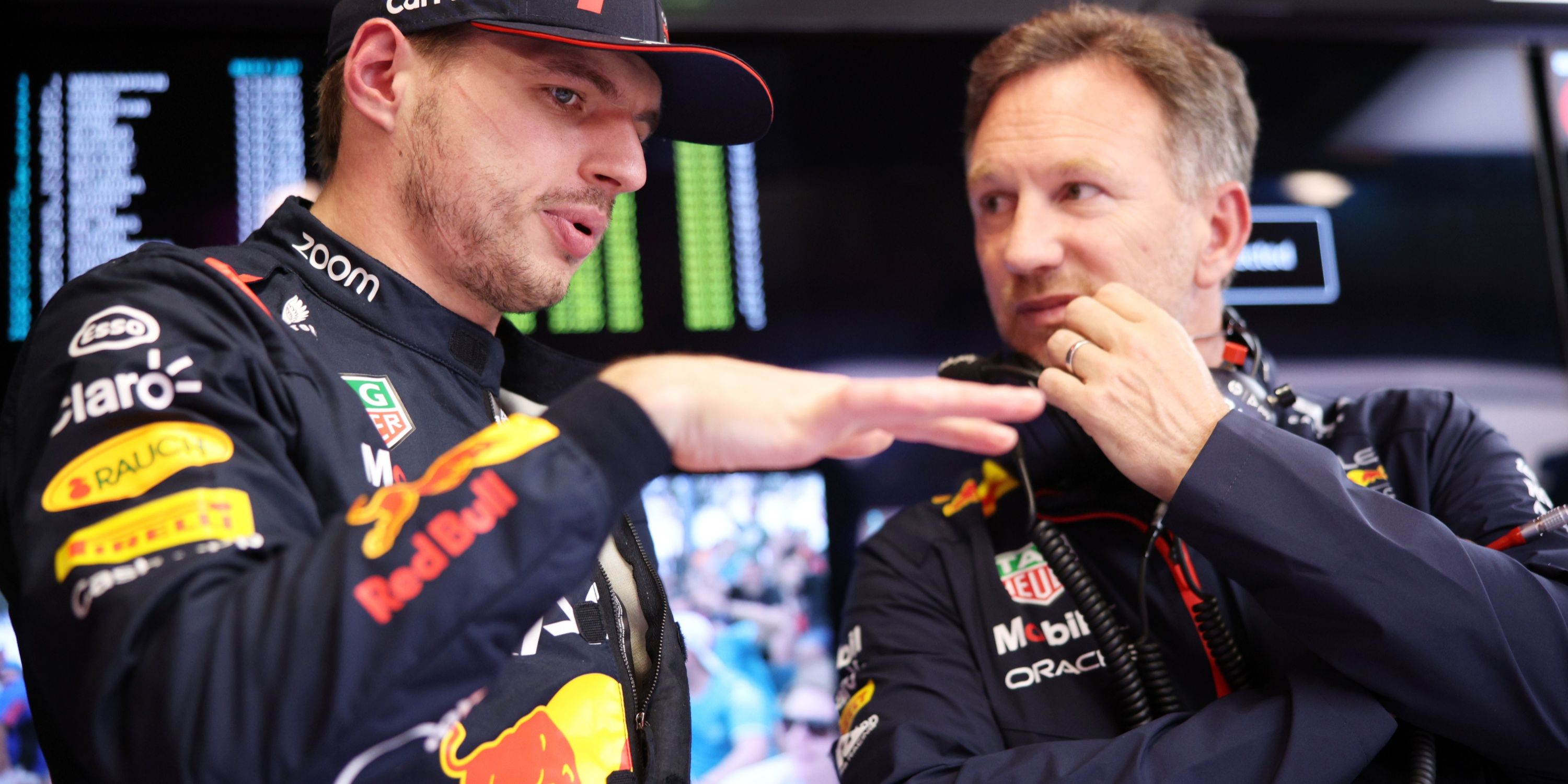A Look At F1 Greats: Successes And Failures After 40

Table of Contents
The Physical and Mental Demands of F1 Racing After 40
The physical and mental demands of Formula 1 racing are immense, even for the youngest drivers. As drivers age, these demands become exponentially more challenging. For F1 drivers over 40, maintaining peak performance requires unwavering dedication and strategic adaptation.
Maintaining Peak Physical Condition
The rigorous physical demands of F1 racing, including intense G-forces, demanding race strategies, and the need for lightning-fast reflexes, place a significant strain on the body. Older drivers face unique challenges:
- Increased recovery time: The body simply takes longer to repair itself after strenuous physical activity.
- Susceptibility to injury: Older drivers are at a higher risk of injury due to decreased muscle elasticity and bone density.
- Need for specialized training regimes: F1 drivers over 40 often need to adapt their training regimens to focus on injury prevention and maintaining flexibility.
Drivers like Nigel Mansell, known for his incredible fitness levels even in his later years, showcase the importance of rigorous physical preparation. Conversely, some drivers struggle to maintain the same fitness standards as they age, impacting their performance on the track. The key lies in proactive health management and tailored training programs that address the specific physical challenges of aging.
The Mental Game
Beyond physical fitness, the mental game in F1 is crucial, particularly as drivers age. Maintaining peak performance requires:
- Maintaining concentration levels: Sustained focus over long races and intense qualifying sessions becomes more demanding.
- Handling pressure: The pressure to perform at the highest level, especially when competing against younger, faster rivals, is immense.
- Adapting to changing car technologies: Formula 1 technology is in constant evolution, requiring drivers to adapt and learn quickly.
Veteran drivers often demonstrate remarkable mental resilience, drawing on years of experience and accumulated knowledge to compensate for any physical decline. Their ability to manage pressure and make strategic decisions under intense pressure is invaluable. The mental fortitude of F1 drivers over 40 is a testament to years of dedication and perseverance.
Notable Successes of F1 Drivers Over 40
Despite the challenges, several F1 drivers over 40 have achieved remarkable success, proving that experience and skill can outweigh the limitations of age.
Cases of Continued Excellence
Several drivers have continued to perform at an exceptionally high level after the age of 40, accumulating impressive achievements:
- Alain Prost: The "Professor" continued to challenge for championships even after 40, showcasing his tactical brilliance and masterful racecraft.
- Nigel Mansell: Mansell's triumph in the 1992 World Championship at age 39 demonstrated his exceptional fitness and competitive spirit.
- Fernando Alonso: Though still actively racing, Alonso's longevity and consistent competitiveness illustrate the possibility of continued success well into a driver's 40s. His future performance will be keenly watched.
These successes were not simply due to talent; they reflect a blend of physical fitness, strategic brilliance, and adaptability. Race wins, podium finishes, and consistent championship points demonstrate the continued excellence of these legendary drivers.
The Role of Experience and Mentorship
Experience in F1 is invaluable. For F1 drivers over 40, this experience translates into:
- Mentoring younger drivers: Veteran drivers often play a crucial role in guiding and supporting younger teammates.
- Leveraging team dynamics: Their understanding of team dynamics allows them to navigate internal politics and maximize their team's potential.
- Utilizing past experiences to navigate challenges: Years of racing under pressure equip older drivers with the ability to adapt to unexpected situations.
This accumulated wisdom and ability to effectively leverage team resources are often key factors in continued success for F1 drivers in their later years.
Challenges and Setbacks Faced by Older F1 Drivers
While some F1 drivers over 40 achieve remarkable success, others face significant challenges.
Competition from Younger Drivers
The intense competition from younger drivers presents a considerable hurdle for older drivers.
- Decreased reaction times: Age can slightly affect reaction times, potentially putting older drivers at a disadvantage in close racing situations.
- Adaptability to new technologies: Keeping up with the constant technological advancements in F1 requires continuous learning and adaptation.
- Challenges securing competitive seats: Teams often prioritize younger drivers perceived to have greater long-term potential.
This intense competition often results in older drivers being outperformed by their younger teammates or rivals, leading to career setbacks and the search for new opportunities.
The Transition Out of F1
Retirement from F1 is a significant transition, presenting both opportunities and challenges.
- Finding new opportunities: Many former drivers successfully transition into management roles, broadcasting, or other motorsport-related positions.
- Adapting to a different lifestyle: Adjusting to life outside the intense pressure cooker of F1 can be difficult.
- Maintaining relevance in the motorsport world: Staying involved and connected within the motorsport community is a goal for many former drivers.
The successful transition of some drivers into influential roles after retirement highlights the value of experience and adaptability even beyond the race track. However, other drivers might face greater difficulty in navigating this transition.
Conclusion
The careers of F1 drivers over 40 highlight the remarkable balance between physical and mental resilience, the value of accumulated experience, and the relentless pressure of intense competition. While age presents unique physical and mental challenges, many drivers continue to excel through strategic adaptation, meticulous training, and the leveraging of their vast experience. Some gracefully transition to new roles while others struggle to maintain relevance. The stories of F1 drivers over 40 are compelling narratives of resilience, success, and the enduring human spirit.
Want to learn more about the fascinating careers of F1 drivers over 40? Explore our other articles on legendary drivers and their achievements. Delve deeper into the world of F1 drivers over 40 and discover more compelling stories of resilience and success!

Featured Posts
-
 Live Streaming Moto Gp Inggris 2025 Trans7 And Spotv Jadwal And Klasemen Terbaru Hari Ini
May 26, 2025
Live Streaming Moto Gp Inggris 2025 Trans7 And Spotv Jadwal And Klasemen Terbaru Hari Ini
May 26, 2025 -
 Severe Weather And Flooding Miami Valley Under Flood Advisory
May 26, 2025
Severe Weather And Flooding Miami Valley Under Flood Advisory
May 26, 2025 -
 Is This Maccabi Tel Avivs Year Israeli League Update
May 26, 2025
Is This Maccabi Tel Avivs Year Israeli League Update
May 26, 2025 -
 Tour Of Flanders 2024 Pogacars Impressive Solo
May 26, 2025
Tour Of Flanders 2024 Pogacars Impressive Solo
May 26, 2025 -
 Zhengs Rome Return Past French Opponent To Last 16
May 26, 2025
Zhengs Rome Return Past French Opponent To Last 16
May 26, 2025
